Written By: Dan Geer
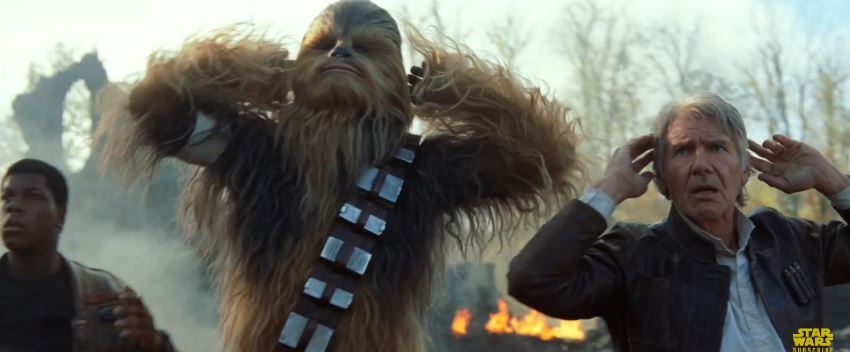
In the last couple of decades, it has become increasingly apparent that there has been a paradigm shift in terms of how audiences watch and enjoy movies. While film criticism has been around for as long as I can remember, it seems as if your average modern-day cinephiles have become more critical than ever, and as a result have enjoyed films much less in the last couple of decades than they did in the decades prior. What went wrong?
Is it simply because films today are not as good as they used to be? Could it be that people were less analytical as kids then they are as adults? Are they just not as forgiving as they once were? Have social media, link-bait and other entertainment websites actually created an environment where bold contrarian opinions create mass influence to tip the pendulum the other way? Seems like an uninformed meme posted on Facebook these days can easily change the world if it’s snarky enough.
These are all valid questions, and it is hard to pinpoint any one particular reason why people have become so brutal when it comes to their opinions when they don’t like something. But the increasing presence of hypercritical filmgoers seems to be the one constant in all of this, whether in talking with others in person, or when browsing social media and online message boards. Whatever it is, modern audiences think they’re critiquing fairly, when in reality they have become cynical, pretentious monsters where anything less than perfect is unacceptable.
Is it maybe just that people have simply forgotten how to enjoy movies (or never really learned to begin with), and need to reevaluate their methods on how they develop their opinions? This article indicates that this could very well be the case, and that maybe people need to take a few steps back and reevaluate certain aspects of how they view films in general. Read on for a few key pointers on what I personally believe make for a better, more healthy movie viewing experience. You may just end up liking films more than ever!
1) Stop thinking in terms of “thumbs up/thumbs down”

One mindset of modern day filmgoers is the “thumbs up/thumbs down” method of grading a movie. It is possible that film critics Siskel and Ebert may have inadvertently solidified a mentality that there is no in-between by grading movies this way on their TV show At the Movies (although they would clarify within their review the positives and negatives). Whether that is the case or not, it seems that even though an average film may have some good things going for it, often your typical modern-day cinephile will still say it is a terrible film if there was anything that didn’t work for them, without ever highlighting what they liked about it. The negative oftentimes outweighs any positive aspects of the film to the point where the viewer is blinded to anything he or she might have thought was good.
The reality is that a movie is usually not all good or all bad, and no film is “perfect.” Films have various subtle levels of quality, and it depends on how bad certain aspects of the film were that more or less determine if the movie is good overall. The four- or five-star system of grading movies is by far a better way to accurately assess how much one enjoyed a film. By thinking of films this way, it opens the door to be much more pleased with one’s moviegoing experience.
For example, a movie rated 2.5 stars out of 4 may be far from a “perfect” score, but still means that the movie had enough going for it to still enjoy it. It’s above average. Sometimes one will find a plot to be a bit thin, but thought the characters were great. Or maybe the action and plot were stellar, but the characters were somewhat weak. Instead of focusing on the negative aspects of a movie, people should focus on what they did enjoy first. Determine whether or not what they did not like truly outweighs the good. It is surprising how often the positives heavily outweigh what didn’t work, and allow the viewer to still walk out enjoying the movie overall.
Just because a film is flawed, doesn’t necessarily make it a terrible (1-star) movie. That’s not to say that one negative can’t make a movie terrible, but most times this is not the case. It really depends on how big or important that negative actually is. Many times, people tend to get upset at the negatives simply because they are there, and don’t really think about whether or not they’re actually that big a deal in terms of making a film truly terrible as a whole. They forget the bigger picture.
Perhaps it is time to stop worrying about if a film got everything right, and be okay with enjoying an imperfect movie. It does not diminish a viewer’s understanding of what makes a movie great. It does not make someone an imbecile, because he or she can still be knowledgeable about what does make a better than average or stellar film. Yes, a filmmaker should indeed strive to get as much right as possible. It is fine to point out what one thinks did not work. But in the end, being caught up in the minutiae of it all tends to make people forget to just eat some popcorn and have some fun with the experience. Isn’t that why we all love movies in the first place, to escape reality and lose sight of it for a couple of hours? Kick back, and relax.
2) How often to you walk out of the theater pleased with the film?

This is a question people need to ask themselves to find out if they are actually hypercritical – especially if they watch movies frequently. Ask yourself: Out of all the movies you watch, how often do you find yourself walking out of the theater disappointed, or complaining a lot? How often do you find a movie you even like?
If you’re disappointed the majority of the time, chances are that you are only willing to accept a movie with absolutely no recognizable flaws, completely unforgiving when anything does not quite work for you. The concept that film is a subjective medium is completely lost on you. Yes, there are certain general “rules” to film making, but how those rules are executed on screen is subject to the filmmaker’s vision as well as the moviegoer’s sensibilities.
So, if you are one of those individuals that almost always complains about the movies they’ve watched, perhaps it is time to ask yourself if you’re being too hard on the film (especially if you find that you’re in the minority). Was there really nothing you enjoyed? Did the film really not work at all? Or are you just letting the little things get to you more than they should? To illustrate: If you just could not get past lead character Claire Dearing briefly running in heels in Jurassic World, but somehow can accept creating dinosaurs from ancient mosquito blood – you’ve got a problem. You need to chill.
Drop the arrogance, understand that you are an imperfect human being, viewing a film made by imperfect human beings. Your opinion is not the be all and end all. Perhaps it is not the film itself that is flawed, but rather your own perception of it. Maybe it is time to be forgiving of the little things in service of the greater good.
3) Retain “Suspension of Disbelief”
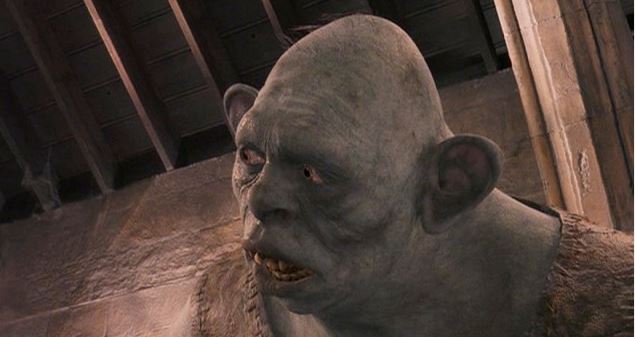
Speaking of the “little things,” science-fiction and fantasy movies often suffer in the minds of modern moviegoers due to the fact that they just can’t get beyond that flawed visual that “took them out of the movie.” Remarks such as “It looked fake” or “The CG was terrible” often pop up in conversation. Since when did we become so hyper-focused on how great or awful the effects are?
These days, filmmakers have become so sophisticated, with their techniques and vision only limited by their imagination because of how far we’ve come with technology and special effects. While this is fantastic, it seems it has also created a culture where the concept of “suspension of disbelief” has become lost on modern audiences, especially the millennial generation that did not grow up in the classic days of special effects (disclaimer – there are always exceptions within demographics). It’s a skill set old-school moviegoers developed in the early days of filmmaking, because effects just were not nearly as sophisticated as they are now.
Back when Ray Harryhausen stop-frame animation was all the rage, no one criticized the medium of all the flaws that are visible with every movement of the various fantasy creatures he brought to life. Those effects are praised to this day as being highly innovative, creative and revolutionary – even if incredibly dated by today’s standards. Nowadays, if a computer-generated character is even the slightest bit off, where something as small as an eye twitch isn’t quite right – the entire effect is ridiculed. When did people become so obsessed with every last little tiny detail? Why does it matter that much?
Perhaps it is because visual effects are so close to perfect these days that people get super critical because the artist almost got it right but didn’t. Or maybe it is because we have seen better effects in some other film. I get that. I really do. But at the end of the day, it is still just an effect, and it should not irritate the moviegoer so much as to let it take him or her out of the film, particularly when the imperfect effect is actually still really great.
We still need to retain suspension of disbelief whenever we’re looking at something that we know isn’t real. Admittedly, this is hard to do, especially these days. But is a flawed effect really so bad as to let it take over one’s enjoyment of the story and characters, especially if the rest of the movie is pretty good? Usually not. Just let it go. While artists should indeed strive to get better and better, ultimately it is just a tool to serve the story. It is the story and its characters we should be focused on, since it is those aspects that drive the movie. Effects are mostly trivial details that people should spend way less time complaining about. We have it far better than ever these days in terms of visual effects, and should be grateful – not whiny.
4) Can you really drive a truck through that plot hole?
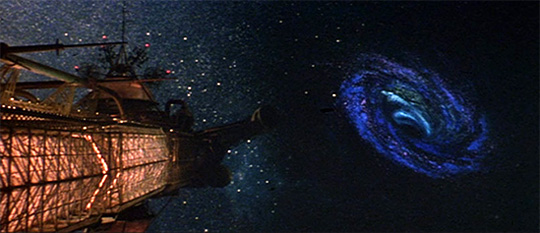
This is really a loaded question, as you will soon see. We’ve all been there. We walk out of a movie, and some aspect of the plot doesn’t make sense. Many people often times have a knee-jerk reaction, immediately claiming a plot hole or other type of failing of the writer or director was present, without looking any deeper afterwards. The viewer just could not immediately make sense of it, so therefore the film must be flawed. It has become fact, and there is no room for negotiation.
But is it really a plot hole? Or could it be that perhaps the viewer just didn’t think it through, or maybe even overlooked something? Sometimes it is not up to the filmmaker to directly fill in certain details on film, but rather the viewer’s responsibility to contemplate about it afterwards and piece things together.
For example, we usually do not see everything a character is up to, because that character is not always on screen. We may see him/her in scene A and then immediately after in scene B, but we don’t necessarily see what happened in between A and B. That does not mean nothing happened in that time. It simply means we did not see what happened. The characters and situations exist outside of what is on screen, which means what happens in between is up for interpretation by the viewer. It is in this time that supposed plot holes can oftentimes be rationalized. Within reason, we can take the things we know to fill in the blanks we don’t know when something doesn’t quite seem to work, especially when a larger amount of time passes within the story between scenes.
This is not lazy writing. This is the writer allowing the viewer to make up his or her own mind regarding certain elements that are most likely not imperative to the plot of the film, or maybe secondary. Some things are open for interpretation, which is part of why movies are so great. It’s an art form, and works of art often require the viewer to contemplate what they just saw to make sense of it. It’s actually an interactive experience. As long as there is enough information in the film itself to help the viewer draw conclusions about what wasn’t outright explained, that is all that matters.
Sometimes it appears that even after considering the above point, the film still doesn’t work on some level. But this should then beg the question: Did you maybe overlook something altogether, and just arrogantly think you thought of everything? Many times viewers don’t always catch everything (especially with just one viewing), but walk out absolutely convinced that they did. Perhaps they looked down for two seconds, and in those two seconds something very important was shown or talked about in the film. Maybe the viewer’s mind just blanked out for some reason right when a tiny piece of dialogue was delivered that hints at, or outright gives an explanation. Other times, films are just subtle, and the viewer didn’t pick up on the clues. Could be a number of different reasons.
Perhaps it is time to give the film another viewing – especially if it is a movie you really wanted to like, or one that you were enjoying up until that “plot hole” came to your attention. Be willing to give it another shot, and go in looking for elements that could help make sense of things. After all, the filmmaker spent far more time thinking about the film than you did. Give the writer/director the benefit of the doubt. It is far more likely that your own neglect is as fault rather than that of the filmmaker (*scroll down to the bottom of this article for a more detailed example of viewer neglect).
A couple other smaller, but still important considerations to take regarding supposed plot holes are as follows:
- Is the film a part of a series? If so, perhaps a plot point introduced in the first film that doesn’t quite make sense will be explained in a subsequent film. Allow the entire story to be finished before drawing conclusions about various aspects of the plot that did not immediately make sense or appeal to you.
- Is it really a plot hole, or just a stretch? A stretch of the imagination does not necessarily constitute a hole in the plot. It simply means something might be possible, even if it seems unlikely that it could happen. If something is within the realm of possibility, it can still at least be considered as acceptable and not really a plot hole at all. Oftentimes, a stretch in the plot gets lumped into the plot hole category, which really not the way it should be. It really is more related to “suspension of disbelief” than anything else, which is perfectly fine in most cases. The Jurassic World example pointed out previously fits right in here.
If you have exhausted these options on you own, try Googling the answer to your question about the plot. Perhaps even the writer or director has an answer, or some random movie website. Seriously, you’d be surprised at how beneficial it is to get other perspectives, and humbled at how much you actually didn’t know or consider. If you really wanted to like the movie, but didn’t, it is worth the effort.
And in the end, if there really is no answer, and something is indeed a plot hole, is it really big enough to dive a truck through? Or is it smaller than you’re making it out to be? Is it really big enough to ruin the movie? Usually not.
A good train of though with these types of things is to stop thinking of films as films when you watch them. Start acting as if you are looking through a window into a reality of events that actually occurred. You saw it. It happened. You have become an eye-witness. Therefore, there must be a rational explanation for whatever you witnessed that didn’t immediately make sense. The characters believe their story is real, therefore you should too amidst the duration of the film.
When you do this, then the concepts presented above suddenly come into play automatically, and make for a better movie-going experience. It causes one to think about the film afterwards, instead of just trusting in his or her immediate thoughts and reactions. The whole point of watching a movie is to forget that it’s fiction while you’re watching it, and not as a film where you’re constantly analyzing every detail to make sure everything “works.” Escape reality and fully immerse yourself into the story and characters as if it is all really happening right in front of you and ask yourself, “Is it possible within the reality the film presents?” More often than not, the answer is yes.
5) Stop asking questions during the movie

This requires its own category, because it is such a simple concept that always poses a serious problem. Aside from the fact that talking during a movie is never acceptable, asking questions as the movie is happening is already leaving plenty of room to overlook key plot points. Many times, I have found that when someone is asking questions during the film, the movie usually answers the question anyway – many times right after, or even at the same time the question is being asked. The person literally just talked over the film’s answer.
Just shut up and allow the movie to explain itself. Most of the time it does. It is that simple. If the viewer is no longer pondering the question after the film is over, odds are the question was answered, or was not that important to begin with anyway to continue bothering about.
As an added bonus, those around you will not be annoyed by your presence. Silence is golden.
(FYI, this point excludes movie-viewing parties, where everyone has already seen the movie and knows it by heart, where friends are simply providing amusing commentary about something they already enjoy).
6) Quit trying to predict what is going to happen and live in the moment
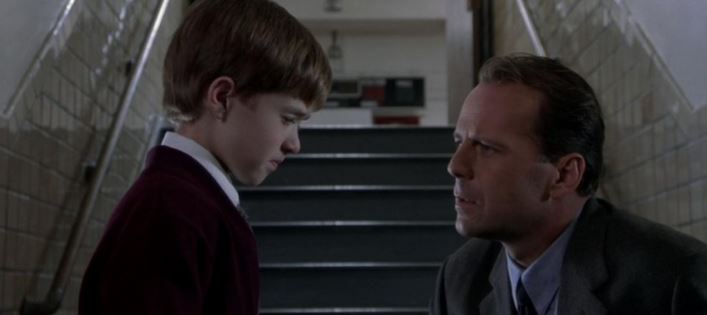
Okay, I completely understand how difficult this is. We are always trying to guess what is going to happen next, or even worse, what the twist ending will be. Ever since The Sixth Sense, is really hard to not do this. How many times have we questioned whether or not a lead character is dead from the start?!
Here is the thing: Filmmakers are always trying to get us to live in the moment, not to think ahead. They may try to anticipate what we may think and write accordingly to help suppress our suspicions, but we are really supposed to enjoy what we are currently observing from scene to scene in the present tense, versus what the eventual outcome will be. By constantly trying to outsmart the director or writer of the film, the audience is robbing itself of the pure enjoyment of a surprise twist or ending, and often winds up hinging its grade of the film on whether or not they were surprised, versus whether or not the film actually told a great story. This right there is a recipe for failure, and it is typically not the filmmaker’s fault.
A perfect example of this is Martin Scorcese’s Shutter Island. Admittedly, the “twist” can be looked at as quite predictable, because “he was crazy the whole time” is a common plot thread in films and stories, and is easy for seasoned viewers to pull this thread out of a hat and into view when watching the film. But really only when one is looking to predict anything in the first place, and not just taking the story in as it comes does one start guessing. When thinking ahead, the viewer becomes so fixated on the fact that he or she predicted the ending that when one is not surprised by it, it no longer matters if the entire film is visually beautiful, haunting, well acted and well told. The viewer pre-chose from a handful of common twist endings and guessed the outcome, so all of a sudden none of the other great qualities of the film even matter.
What matters is whether or not a film worked as a whole to tell a great story, and not really whether or not the viewer was surprised. Shutter Island tells a tragic story of a man who lost everything, and how far he went to deal with it, and Scorcese tells the tale very well. It is great when we are taken by surprise, but when we’re not, it does not mean the film is a failure. Just because something was predictable, doesn’t mean the movie is terrible or didn’t work. It means that the viewer was not living moment by moment like he or she should have been.
If you cannot take it moment by moment, and can’t help but anticipate various plot threads or twists, just understand that the surprise is not the be all and end all of what makes a film great. There is so much else to consider.
Of course, don’t spoil the surprise for someone who hasn’t seen the film. While enjoyment of a movie should not depend on whether or not one is surprised, it still takes away the joy of being surprised. Not everyone will figure it out like you did.
7) Manage your expectations

This could very well be the most important thing to keep in mind. High expectations can form due to a number of different reasons, and can be the very demise of one’s enjoyment of a movie. The key point to remember is to keep one’s expectations as low as humanly possible. This can encompass a number of different methods.
Admittedly, it is very difficult to lower expectations when a new Star Wars film is on the horizon, or when top directors like Christopher Nolan or Steven Spielberg have a new film coming out. When a film franchise or director has gained a great reputation because of multiple successes in the past, it is our natural instinct as moviegoers to anticipate the best.
The reality is that each film is a new endeavor, whether or not previous films in a franchise or a director have accomplished greatness before. They start from scratch with each and every film. Sure, a director may have more experience, and it is likely that he or she may at least create a serviceable film, if not something groundbreaking. But each new movie created is still a brand new story that starts from the ground up, and leaves plenty of room for error.
Regarding franchises specifically, it is always best to first view the latest movie in terms of how it stands on its own, versus immediately comparing it to what came before. When disappointed, ask yourself: If this latest film were the first in the franchise, would you view it differently? Without all that baggage going in, would this individual story entertain you at all? Would you actually consider it to at least be an average movie, if not good or even great?
That is not to say that sequels/prequels should not strive to live up to what came before, or that we should not compare. But when we always compare to previously successful endeavors first, we almost always come out disappointed. “It just didn’t have that special magic the previous movie had.” “It just wasn’t nearly as entertaining as the last film.” “The plot just didn’t resonate with me like the other films did.” I’ve heard it all before, and these types of criticisms stem from constant comparison, always criticizing what the film isn’t rather than evaluating it for what it is.
Another constant nagging comparison people make is with book-to-film adaptations. Granted, if a viewer of the movie has read the book it is based on, of course it is impossible to not compare. In this case, no matter what, the fan of the book will have expectations. This is where the viewer has to set his or her expectations ahead of time as to what to expect whenever a film is adapted from a book (this is often why I just don’t read the book until after I have seen the movie – I have absolutely no idea what to expect, and usually end up enjoying what I see if the story was good).
The first thing people need to do is realize that film is a different medium than a book. Unlike books, films have a time duration. They are visual, and subject to the filmmaker’s interpretation of the book, not your own. The pacing is different, because you have to show everything, and allow for characters to speak with normal cadence (not speedily reading through the lines like we often do while reading). This means that it is more than likely the film won’t include everything in the book, because not everything in a book can really be interpreted well on film, and having a time limit assures that some things will just be left out. By trying to include everything in one film based on one book, most times the film has no time to breathe, leaving the viewer feeling cramped and overwhelmed (this is why more recently we have been given two- or even three-film endeavors with the Harry Potter, The Hobbit and The Hunger Games franchises, where there are just too many vital plot points that happen in one book that just cannot be comfortably placed into one film without sacrificing the story**).
As long as the film adaptation keeps the spirit of the book in tact, that is really all we should be concerned about. If the main story is preserved, makes sense and is enjoyable, we need not be concerned with what is left out, unless what is left out was actually an integral part of the original story. It is much more disconcerting when important aspects are left out of film adaptations of one book spanning over the course of more than one film, when clearly there is enough time and is something that could have indeed been interpreted on film. But even then, the film can still be great, as a film.
Finally, expectations should be set based on what the director’s vision is. For instance, when director Michael Bay makes a Transformer movie, he is not setting out to make a film on the level of Spielberg’s Schindler’s List or Coppola’s The Godfather. We should never expect Bay’s movies to be anything more than mindless entertainment with great action sequences and tons of explosions. A roller coaster ride put to film is all Michael Bay ever sets out to do with these movies.
That is not to say the Transformers movies can’t have faults. They certainly can, and there are definitely certain films in the series that are better than others. They still do require likable characters and a story that at least works on the surface. They also have to honor and respect the source material. But we cannot expect anything deeper than that. We cannot demand they be taken as seriously as a film like Schindler’s List. If Michael Bay created a fun and exciting popcorn movie, then he achieved what he set out to do, and we should only measure it up to other movies created with the same mindset.
Keep expectations low. Don’t walk in expecting much out of a movie, even if the buzz surrounding the movie is very positive. Accept that it won’t be exactly what you want, and be willing to give someone else’s vision a try. Be willing to evaluate it on its own before comparing, if this concept applies to said film. It still may not be appealing to you, but at least you were open to it.
——
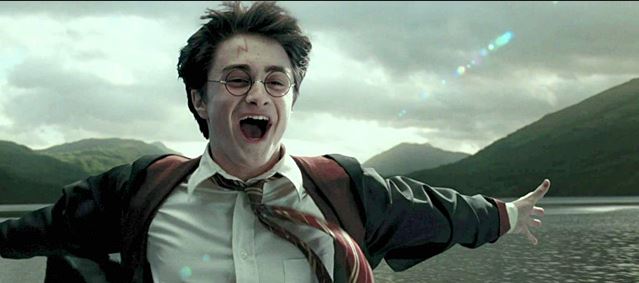
If you are able to apply the seven healthy tips illustrated above, congratulations! You have a soul and are free from the bonds of pretentiousness. You can start enjoying movies again!
In all seriousness though, it is the opinion of this writer that one’s enjoyment of a movie comes down to one simple question: Does the viewer care enough to think twice about the film he or she just watched? If the viewer does not care, then odds are that person just wanted something to do for a couple of hours to pass the time, probably with some friends, and could care less about pondering the film afterwards. That’s perfectly fine. But if the viewer is so passionate about his or her disappointment in a film, should one not be equally as passionate about considering the above points in this article to help with creating a better moviegoing experience? These are all common sense practices.
This article simply illustrates some key areas that seemingly were applied naturally in the minds of general audiences once upon a time, but no longer are in most cases due to impatience and the hyper consumption of instant gratification. Moviegoers are also easily impressionable by the negative opinions of others, particularly on social media, simply because they instantly appear to make sense on the surface. They don’t consider analyzing on their own to actually verify if the contrarian opinion holds any water. People believe they are thinking correctly, when in fact they actually lack discernment. They are unable to apply simple common sense when watching movies.
Yes, it is entirely possible that even after considering all of the above points, the film just simply does not work. Sometimes the plot can only stretch so far and the hole cannot be filled. A CG effect can be terrible enough to be worth pointing out. Sometimes the writer and director really did fail at what they set out to achieve. It happens. But I believe modern audiences tend to think this happens way more often than it actually does because they are unwilling to see beyond their initial reactions and cannot accept that they could be wrong.
A film should only not work for the viewer when all other applicable considerations are weighed appropriately. When they’re not, odds are the viewer will end up thinking most of the movies he or she watches have a great number of issues, when in actuality they may not – meaning most of these movies that are thought of as bad are actually not that bad. They might actually be pretty good, if not great. They might not be as good as some other comparable film the viewer likes, but that does not mean the film is no good at all. A disappointment at most, but not necessarily a bad film in and of itself.
We need to recognize and embrace the positives about the film we just watched before weighing the negatives, and let that dictate just how much we should really care about the negatives in the first place. If the movie is not perfect, we cannot let ourselves be surprised by that and instead be okay with imperfections if the majority of the film is good and works. We should be forgiving within reason, and suspend disbelief when appropriate. We need to stop instantly making comparisons, lower our expectations, form our own opinions after considering others and just have some fun for a change. That is what going to the movies is all about!
And hey, if you completely disagree with me on any of the points I have made in this article, that’s fine. This just means I get my money’s worth at the movies far more than you do. I’m okay with that.
*Example of viewer neglect:
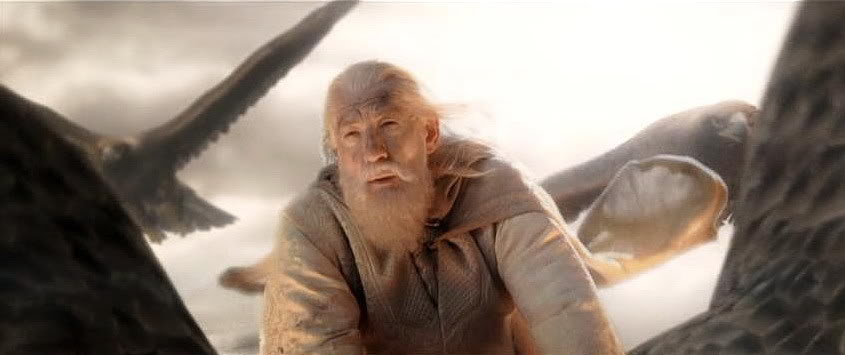
A great illustration of considering what you may have overlooked in a film is the never-ending claims of the supposed plot hole in The Lord of the Rings with the giant Eagles. One of the most common accusations against the film trilogy is that the characters could have just taken the Eagles to Mordor to destroy the One Ring, instead of walking the entire way, supposedly saving themselves from all the peril they suffered and cut their travel time to a fraction of what it was in the films.
Of course, the film could have directly addressed on screen why they don’t consider the Eagles. Maybe that would have helped clarify some things to address them directly. However, there are enough indications already in the films that indicate that this would not be the best choice. It seems that many overlooked the following clues:
- “The Enemy has many spies in his service; birds and beasts,” says Gandalf. It is entirely probable that any one of these spies could very well spot the giant Eagles in plain sight from miles away and alert the Enemy, including the Nazgul flying on “fell beasts.” Why would they ride the Eagles when the Enemy also has flying beasts out there hellbent on hunting them down?
- Gandalf also says (in the extended version of The Two Towers) that the one advantage they have is that the Enemy has no idea they seek to destroy the Ring because it remains hidden. He states that everything depends on speed, but also the secrecy of the quest. Flying these giant Eagles into Mordor could very well blow the secret wide open and put the characters and their mission at terrible risk. At least the characters think so. They would probably be taken out long before they reached Mordor if they exposed themselves that way, and the Enemy would easily reobtain the Ring for his own at that point and destroy Middle Earth.
- If Eagles were so easy to come by, we’d probably see them flying around a lot more than we actually do in the films. We can conclude from this that they’re probably rarely seen in Middle Earth and that they’re not readily available as a taxi service.
- The movies indicate that you need wizardry and a chance meeting with a moth to even request an Eagle’s help, and that is if the Eagles decide they even want to intervene. Who is to say they will always do what is requested of them? We just do not know enough about them to say one way or the other. They’re definitely not Gandalf’s employees.
- The characters never bring it up as an option. If taking the Eagles was indeed a good idea, they would’ve considered it. These characters live in Middle Earth and know it better than us and understand the culture. So the fact that they don’t mention the Eagles could very well mean they understand already that it would be a bad idea. It’s just not worth bringing up.
- Going back to the point of things happening off screen, it is plausible that the characters may very well have discussed the Eagles at some point. We do not see all of the characters 100% of the time, and the quest takes place over a long period. So we cannot be 100% certain of everything they talked about on their quest anyway.
With this particular plot element, the writers are hinting at things along the way, and not outright handing everything to the audience. This is a good thing. It again goes back to the point of taking what is on screen and applying it to what isn’t. It encourages audience participation and speculation. That’s a big part of what makes movies so enjoyable in the first place. Sure, they didn’t go into all the details the books do with the Eagles, but enough is on screen to make some sense of it all.
Also, with a fantasy world like Middle Earth, we cannot just assume we know and understand how the world works, or what motives mysterious characters like the Eagles have. It is left vague on purpose, meaning for the audience to draw its own conclusions. It is a secondary plot device that works because of the mystery that surrounds it, and the world it takes place in.
—
**I understand that The Hobbit films included more than just the book itself, but also other writings of author J.R.R. Tolkien that directly pertain to The Hobbit that actually impact or shed new light on what is presented in the book. But even just adapting the book on its own, it is definitely arguable that two films would have been needed. There is just too much that happens in the story that major plot points would have to be sacrificed to create a one-film endeavor, or the film would feel far too rushed if it did include everything. Either way, the audience loses.









